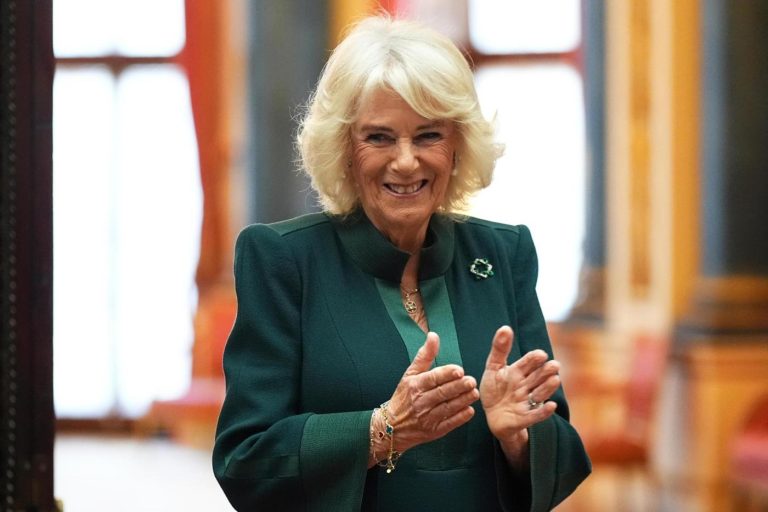Courtney McBride, Tarek El-Tablawy and Alisa Odenheimer | Bloomberg News (TNS)
U.S. Secretary of State Antony Blinken left the Middle East late Tuesday with Hamas and Israel still divided over an American proposal to pause, if not permanently end, the war in Gaza.
After a day spent meeting with Egyptian and Qatari officials, Blinken reiterated that Israel had agreed to what the top U.S. diplomat called a “bridging” agreement that would create space for the two sides to hammer out the details of a cease-fire introduced by President Joe Biden in May. Now it’s Hamas’s turn, he said.
Hamas pushed back against the idea it was the one stalling the talks and said it wanted to reach a cease-fire. It also blamed Israeli Prime Minister Benjamin Netanyahu for coming up with new demands. Hamas is designated a terrorist organization by the U.S. and European Union.
“Time is of the essence,” Blinken told reporters on the airport tarmac in Doha, minutes before beginning the trip home to the U.S. “Israel has now accepted that proposal — I heard that directly from Prime Minister Netanyahu yesterday — and we hope and expect Hamas will do the same.”
It was Blinken’s ninth trip to the region since the conflict began with Hamas’s Oct. 7 attack on Israel, and the result was just the same: Israel and Hamas unable to set aside their disagreements to halt the fighting. Stymied in the push for an enduring cease-fire, Blinken had come to the region this week with the more modest proposal aimed at building common ground and easing the violence.
One stumbling block Blinken and other mediators have been unable to overcome is that Hamas wants any cease-fire to amount to a permanent end to the war, while Netanyahu wants to be able to restart the conflict to achieve his country’s aim of destroying the group’s military and governing capabilities.
There are also rising tensions over Israel wanting to keep troops stationed along the strategic Philadelphi corridor, the southern portion of Gaza that runs along the border with Egypt, to prevent arms smuggling from the Arab nation.
“The first thing is to eliminate Hamas and achieve victory,” Netanyahu said Tuesday. “The second thing is that we are, at the same time, making an effort to return the hostages, on terms that will allow for the maximum number of hostages being released in the first stage of the deal.”
He said Israel must preserve its “strategic security assets,” mentioning its seizure of the Philadelphi corridor and the Rafah border crossing with Egypt earlier in the war. That comment drew a rebuke from a senior State Department official, who told reporters traveling with Blinken that “maximalist” statements from the Israeli leader aren’t constructive.
The official asked not to be identified discussing private assessments of the Israel stance. But the U.S. view underscored how the Biden administration continues to remain frustrated with Israel even as officials such as Blinken continue to insist Netanyahu’s government is on board with their plans.
Officials are still planning to proceed with a new round of talks on a cease-fire set for Cairo later this week, though no precise day has been set. Officials said a round of talks last week had the sides on the cusp of an agreement.
Related Articles
Paul: The misery of leading Columbia University in today’s climate
Letters: Charging stations | Wildfire safety | E-bike regulations | Unwelcoming Democrats | Cease-fire impossible
Blinken visits Gaza mediators in pursuit of cease-fire deal but Hamas and Israel signal challenges
Letters: BART accountability | Cruelty no answer | Not ousted | Cancel Trump | Gaza’s suffering
Blinken says Israel OKs a plan to break the cease-fire impasse and urges Hamas to do the same
Looming in the background is the threat of an attack from Iran, which has sworn to retaliate against Israel for the assassination of senior Hamas leader Ismail Haniyeh in Tehran late last month. Israel has declined to take responsibility for the attack.
Blinken’s trip had been seen in part as a U.S. effort to delay or deter an Iranian attack. On Tuesday, one government official suggested any retaliation would not be rushed.
“Time is on our side and it’s possible that the waiting period for this response will be long,” an Islamic Revolutionary Guard Corps spokesman said to Iranian state TV on Tuesday. Israel “must await calculated and precise strikes at the appropriate time.”
The Israel-Hamas war erupted when Hamas fighters swarmed into southern Israel from Gaza, killing 1,200 people and taking 240 hostage. Israel’s subsequent air and ground assault on Gaza has killed more than 40,000 people, according to health authorities in the Hamas-run territory.
©2024 Bloomberg L.P. Visit bloomberg.com. Distributed by Tribune Content Agency, LLC.












